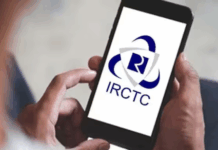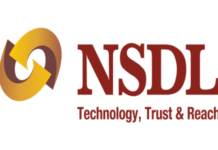
New Delhi, Oct 16, 2015
The Lemelson Foundation, the world’s leading funder of invention in service of social and economic change, today released a new report, Catalyzing Capital for Invention: Spotlight on India. The report examines India’s “impact ecosystem,” the broad network of businesses, funders, and intermediaries that enable social enterprise, and hones in on challenges that limit inventors’ potential.
India is a country of glaring contrasts: 400 million people living in extreme poverty alongside a growing middle class, and persistent and prevalent challenges like unsafe water, air, and sanitation in a nation that just sent a mission to Mars. While invention has the potential to reconcile many of these disparities and improve the lives of millions of Indians, this new research underscores that invention-based businesses need a more supportive environment in order to thrive and get their products to market.
“We hope this research will encourage dialogue and collaboration among entrepreneurs and investors in India and beyond,” said Philip Varnum, chief financial and administrative officer of The Lemelson Foundation. “Inventive minds need the right financing and network of partners for their businesses to flourish, foster job growth, and improve lives.”
“We’re happy to see a much-needed comprehensive analysis of the ecosystem in India. The research and its findings validate some of our own experiences working in the impact space in India,” said PR Ganapathy, president (India), Villgro. “By clearly identifying the needs and challenges, the various stakeholders can all begin the process of mitigating them.” Villgro is a social enterprise incubator working in India and is a long-time grantee of The Lemelson Foundation.
Catalyzing Capital for Invention presents detailed observations and data collected from interviews with more than 60 investors, entrepreneurs and intermediaries, along with actionable solutions for addressing the challenges. The report identifies three specific challenges faced by invention-based enterprises in India:
Ecosystem gaps. Investors do not understand or are not aware of the complex business models and unique needs of invention-based enterprises. The size and regional diversity of India present additional challenges.
Financial gaps. It typically costs invention-based enterprises between $50,000 and $500,000 to develop, test, and prove their business models. Investors often view such early-stage businesses as high-risk with limited potential for growth. Financing instruments lack variety and flexibility.
Capacity gaps. It is hard for science- and engineering-based enterprises to find the technical assistance and mentoring to guide their businesses to viability.
The report presents five recommendations to address these challenges and strengthen India’s impact ecosystem:
Develop an early-stage grant facility that funds enterprises to develop prototypes or core technologies, and prepares them to attract non-grant investments.
Pilot a “proof of concept fund” that provides the $50,000 to $500,000 that invention-based businesses need to market test and develop products.
Create an affordable working capital fund that helps start-up businesses with costs such as salaries, office space, manufacturing facilities, technical equipment.
Establish a fund to finance intermediary services, helping entrepreneurs raise capital, attract investment, and link with the right investor partners and financing.
Facilitate access to financial expertise through targeted training or mentorship so that entrepreneurs get coaching on financial analysis and decision-making.
This new report builds on two studies the Foundation supported last year: a report by the Lawrence Berkeley National Laboratory for Innovative Global Transformative Technologies – 50 Breakthroughs – which highlighted global development challenges that can be solved through innovation in science and technology; and a report by the Aspen Network of Development Entrepreneurs – Impact Inventing: Strengthening the Ecosystem for Invention-Based Entrepreneurship in Emerging Markets – which mapped the gaps in the invention-based business environment in developing world markets.
For this new report, The Lemelson Foundation partnered with Enclude, an advisory firm dedicated to building more sustainable businesses and institutions, to do the necessary research and analysis. The Foundation has been working in India for more than a decadesupporting businesses that createproducts to address the needs of the poor: small-scale renewable energy systems, sanitation systems, and medical devices designed to reach the underserved.
The full report can be found here: www.lemelson.org/studies.




























